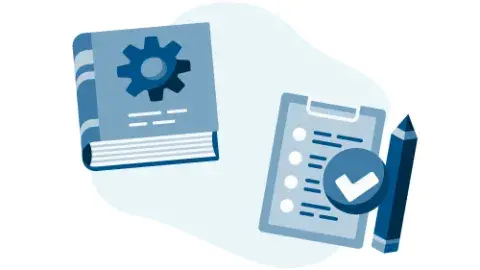The Publication Library contains guidance and policy papers, reports, strategies, program regulations, guidelines, brochures and more.
To search the DHS Publications Library, please enter search terms below.
-
GeoSpace
The U.S. Citizenship and Immigration Services (USCIS) Office of Security and Integrity (OSI) developed GeoSpace to handle the tracking, receipt, and response to incidents that individuals report as Significant Incident Reports (SIR) in and around USCIS buildings and facilities. GeoSpace provides incident management for OSI in geospatial terms, which allows for the timely reporting of critical incidents, activities, and events to USCIS leadership and to the DHS National Operations Center. USCIS conducted this Privacy Impact Assessment (PIA) because GeoSpace collects, uses, and disseminates personally identifiable information (PII).
-
National Terrorism Advisory System Print Materials
Download this poster, created to raise awareness about the National Terrorism Advisory System for distribution in your work areas or breakroom. If You See Something Say Something™ is used with permission of the New York Transportation Authority.
-
Appendix H Chapter 2 Files Comments on NBAF Draft EIS and Department Responses
Appendix H, Chapter 2 Files – Comments on NBAF Draft EIS and Department Responses
-
HSAAC Member Briefing Materials for the July 17th, 2013 HSAAC Meeting
HSAAC Member Briefing Materials for the July 17, 2013 HSAAC Meeting.
-
2012 Final Report
The 2012 National Network of Fusion Centers Final Report summarizes and characterizes the overall capabilities and performance of the National Network.
-
DHS/CBP/PIA-001 Advance Passenger Information System (APIS)
U.S. Customs and Border Protection (CBP) has collected mandatory and voluntary advance passenger information (API) from air, rail, bus, and sea carriers for over a decade. CBP uses API to identify high-risk passengers and crew members who may pose a risk to border, aviation, or public security; may be a terrorist or suspected terrorist or affiliated with or suspected of being affiliated with terrorists; may be inadmissible; may be a person of interest; may otherwise be engaged in activity in violation of U.S. law; or may be the subject of wants or warrants. CBP is publishing this update to the longstanding Advance Passenger Information System (APIS) Privacy Impact Assessment (PIA) series to: 1) expand the collection and receipt of voluntary API in the air, land, and sea environments, including from bridge and ferry operators; 2) document the collection of expanded biographic information from carriers; and, 3) update the data retention period to 13 months.
-
DHS/USSS/PIA-012 Electronic Name Check System
The United States Secret Service (USSS) Information Resources Management Division has established a system called Credentialing Distribution System (CreDS). CreDS provides the USSS with the capability to electronically collect National Special Security Event (NSSE) prospective event worker information to enable automated criminal background checks. The Privacy Impact Assessment (PIA) for CreDS was published in July 2013. This PIA Update is being completed because CreDS is being renamed to the Electronic Name Check System (E-Check).
-
DHS/FEMA/PIA-029 - Citizen Corps Program
FEMA’s Office of Protection and National Preparedness (PNP), Individual and Community Preparedness Division (ICPD) administers the Citizen Corps Program, which also includes the Citizen Corps web-based application, and the Citizen Corps Database. Citizen Corps’ mission is to strengthen the collaboration between government and community leaders from all sectors to encourage citizens’ preparedness through education, training, and volunteer service to make communities safer, stronger, and better prepared to respond to all hazards and all threats. Through Citizen Corps, communities can establish and register Citizen Corps Councils (Councils) and Community Emergency Response Team (CERT) programs. This Privacy Impact Assessment analyzes Citizen Corps’ collection, use, maintenance, retrieval, and dissemination of personally identifiable information associated with points of contacts designated by Councils, CERTs, and other Citizen Corps partners. June 28, 2013
-
DHS/NPPD/PIA-001The EINSTEIN Program
EINSTEIN provides US-CERT a situational awareness snapshot of the health of the federal governments' cyber space. Based upon agreements with participating federal agencies, US-CERT installs systems at their Internet access points to collect network flow data. The agencies are provided tools to analyze their collected data. In addition, the data is shared with US-CERT Security Operations Center, which aggregates it from all EINSTEIN participants to identify network anomalies spanning the federal government.
-
DHS/NPPD/PIA-008 EINSTEIN 2
The original Privacy Impact Assessment (PIA) for EINSTEIN 1, dated September 2004, explained that EINSTEIN 1 analyzes network flow information from participating federal executive government agencies and provides a high-level perspective from which to observe potential malicious activity in computer network traffic of participating agencies' computer networks. The updated version, EINSTEIN 2, will incorporate network intrusion detection technology capable of alerting the United States Computer Emergency Readiness Team (US-CERT) to the presence of malicious or potentially harmful computer network activity in federal executive agencies' network traffic. EINSTEIN 2 principally relies on commercially available intrusion detection capabilities to increase the situational awareness of the US-CERT.




